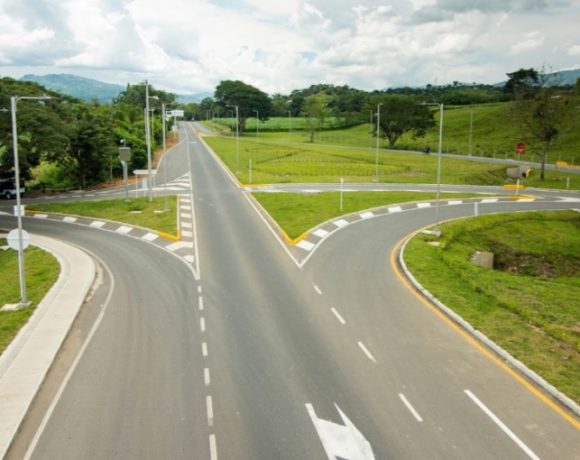Fabicato Denounces Denim Contraband, But Nixes Erroneous ‘Bankruptcy’ Report

The president of Medellin-based textile giant Fabricato SA on January 30 publicly denounced growing, apparently illegal denim-fabric smuggling into Colombia – which helps explain why the company has already slashed its own denim production by almost 80%.
In a filing with Colombia’s Superfinanciera corporate oversight agency, Fabricato President Gustavo Alberto Lenis Steffens also simultaneously corrected an erroneous news report claiming that Fabricato has ceased all textile operations and supposedly is “on the verge of bankruptcy.”
According to Lenis, a January 28, 2024, report from news outlet www.pulzo.com erroneously implied that Fabricato has “ceased operations” and is supposedly “on the verge of bankruptcy.”
“The statement that all the company’s operations are suspended is incorrect, taking into account that this only corresponds to the suspension of denim production process — and not the other lines that are currently produced by the company,” including its “poplins,” “knit” and “entretelas” fabric lines, Lenis explained.
“Denim in Colombia continues to be in high demand . . .I would say it is between 6.5 million to 10 million meters per month. Fabricato is the only national producer of this textile [but] now we register only a fifth of what we normally sold.”
Following investigations, the company determined that some denim prices-per-meter in the Colombian market were not competitive, “since they did not even cover the raw materials of the product,” Lenis stated.
“When you add the cost of cotton — which we all buy in the open market — and then you add everything else — chemicals, dyes — then you find that there are denim prices in the Colombian market are lower than the sum of all those materials,” he noted.
As a result, Fabricato had already slashed denim production by some 80%, going from 1.5 million meters annually to only 300,000 meters now.
“It is not profitable to have a plant that produces 1.5 million meters to produce only between 250,000 and 300,000 — and very few will be able to import without paying entry taxes,” he explained.
Among factors apparently undercutting local Colombian denim production include “dumping, smuggling [and] money laundering,” which likely account for about 32% of the local denim market, he explained.
Also hurting Colombian denim production is substitution by alternative-quality products “from countries such as China, India, Brazil and Turkey,” according to Fabricato.
Meanwhile, the U.S. and European markets for Colombian denim also haven’t yet recovered from a global demand slump (triggered by the Covid crisis), while some important clothing manufacturers that “represented an important percentage for our operations and sales” have gone out-of-business, he explained.
All these factors have caused Fabricato to suffer from lower margins and lower sales volumes on denim — without corresponding relief from working-capital requirements for denim production.
“Now, despite the situation that the country’s economy is going through, of which the textile sector is no stranger, we can say that the company continues with great plans for the future and with financial sustainability, fulfilling current commitments with our customers,” Lenis stated.
“We are looking for more efficient operational and commercial models to have the denim line within our portfolio in a viable and profitable way.
“This will allow Fabricato to focus and strengthen our product lines and business units including ‘Care Wear,’ ‘Fashion Brands,’ ‘Textile Inputs’ and ‘Industrial/Specialized Applications,’ and concentrate on export markets with differentiated fabrics and garments, high added value and strengthened, sustainable-circular product lines with recovered cotton,” he added.
Meanwhile, as long as below-cost denim continues to grab significant portions of the Colombian denim market, this unfortunately will result in “cost-overruns versus the value recognized in the [local] market,” Lenis concluded.
















